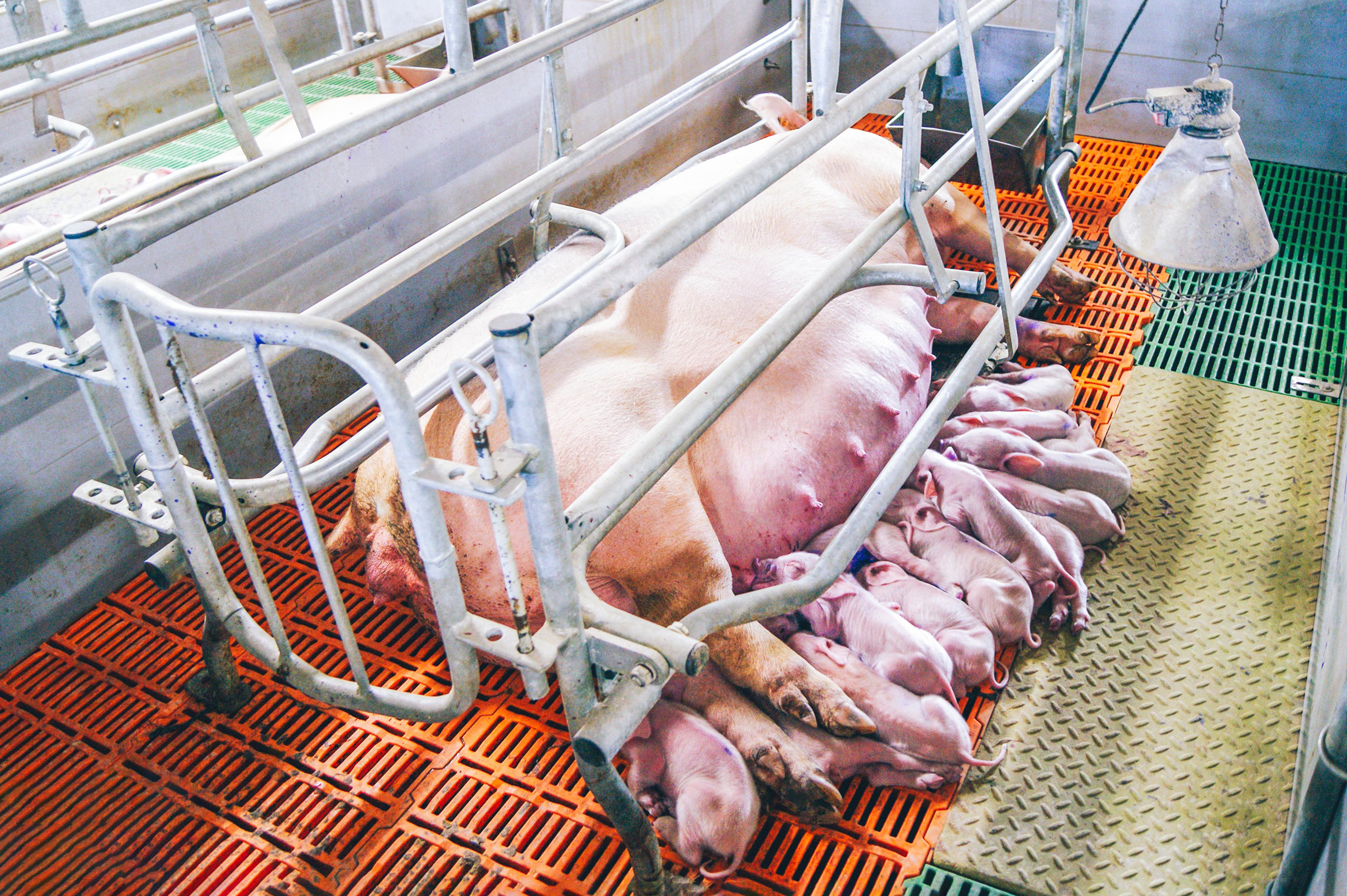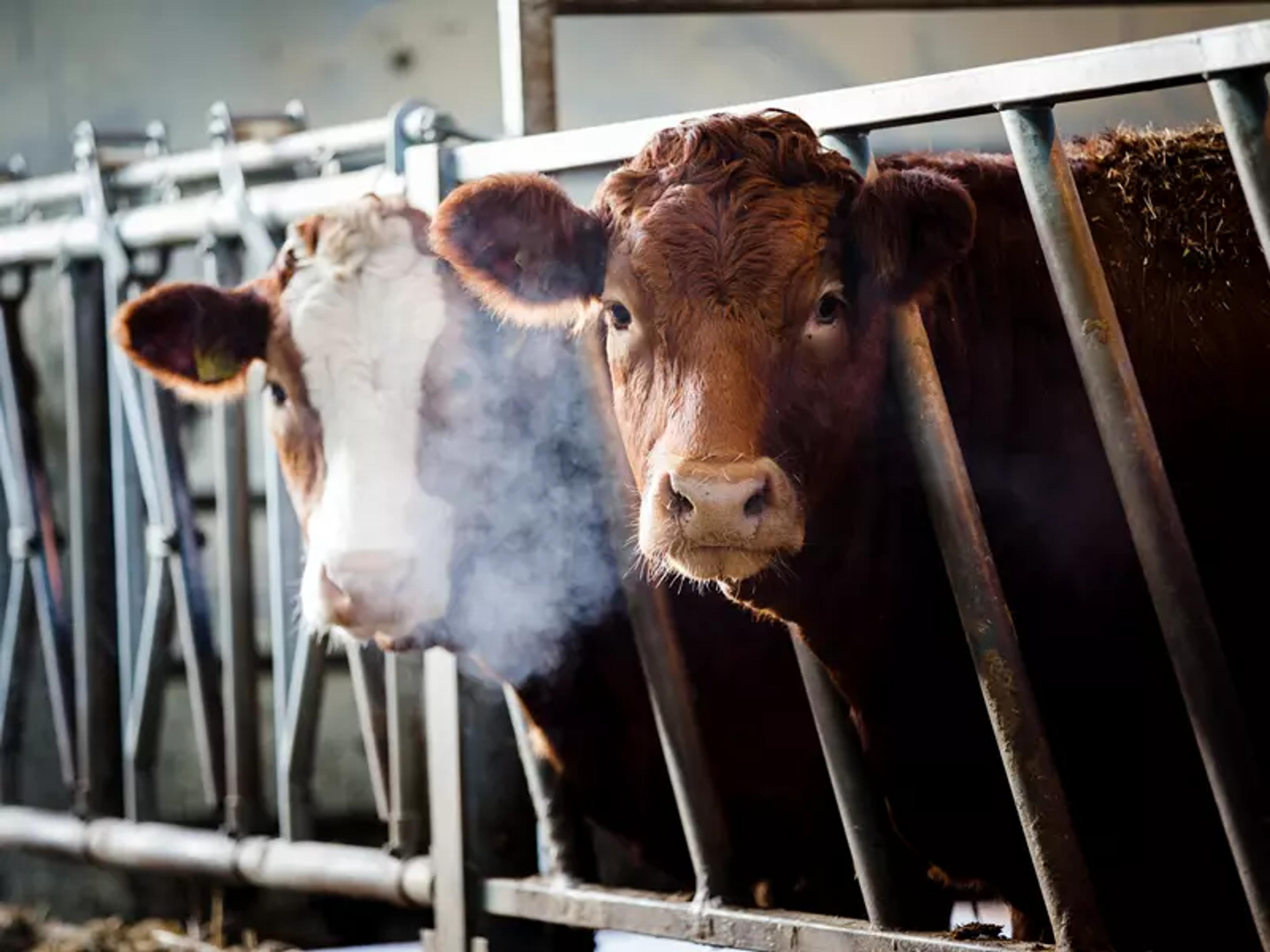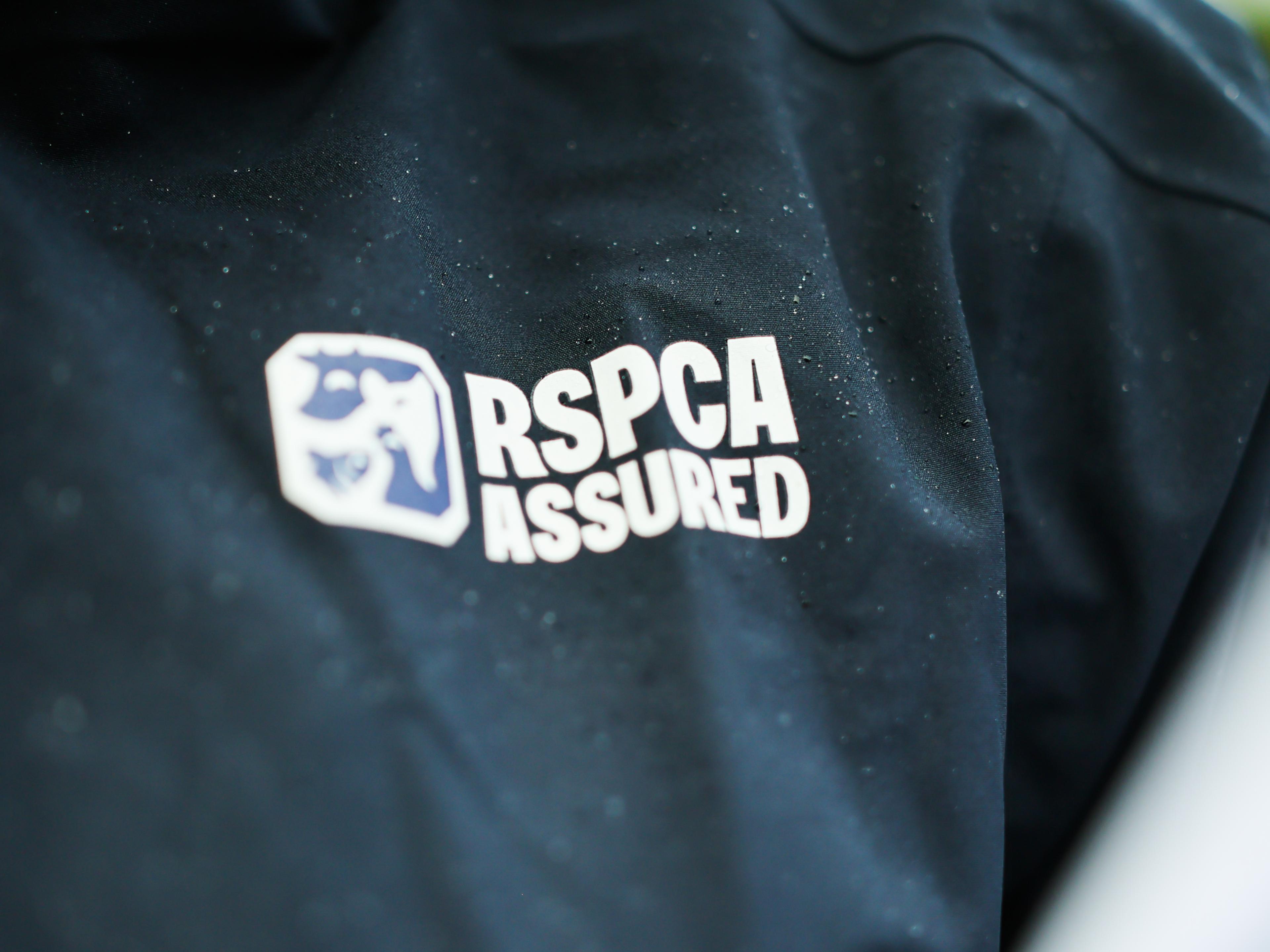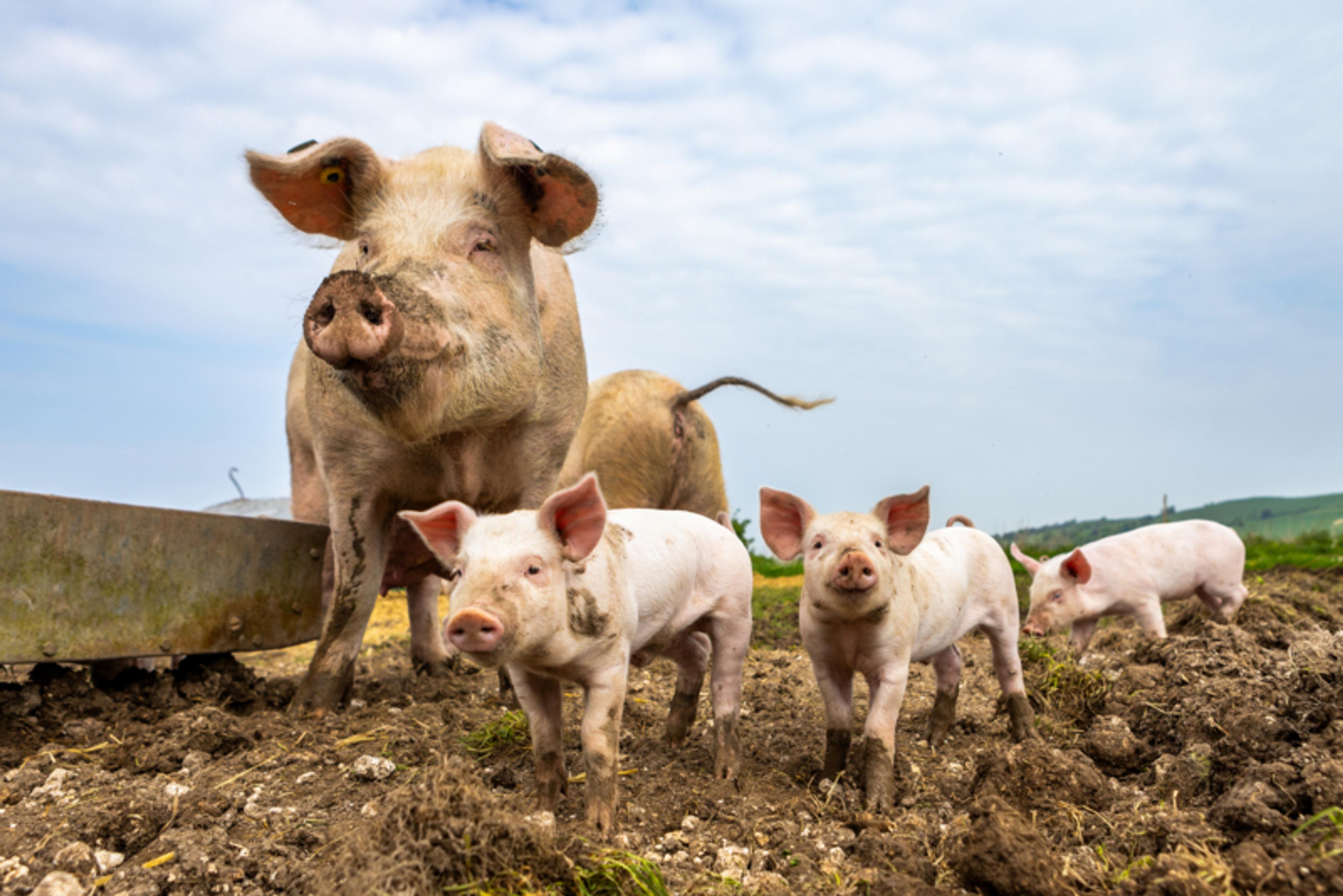
Pigs
Pigs
More than 700 RSPCA welfare standards must be met for pork to be labelled RSPCA Assured.
Pigs can either live indoors – with plenty of space to move around and lots of bedding – or outdoors with access to a dry and comfortable shelter.
The RSPCA standards require...
Mother pigs are never kept in cramped crates
The RSPCA welfare standards don’t allow farrowing crates for pregnant pigs, instead requiring a comfortable environment with plenty of straw to nest in.
Comfortable bedding to lie on
Pigs are given material such as straw to sleep on and root around in, which helps prevent boredom.
Mud wallows
Animals must have a dry, warm and comfortable shelter when living outside, as well as facilities like mud wallows to help pigs keep cool and avoid sunburn.
Plenty of space
Pigs can move around freely, allowing them to exercise and socialise. They can also move away from other animals if they choose to.
Extra training for stockkeepers
Everyone caring for the pigs must have special training, including how to handle the animals, recognise unusual behaviour and fear and prevent disease.
The legal minimum...
Farrowing crates are allowed
Female pigs can be kept in these small pens for up to five weeks, around the time they give birth. Animals can’t turn around or move freely, causing significant stress.
Pigs can be kept in crowded conditions
This can cause frustration, increasing the likelihood of problem behaviours such as biting other pigs’ tails.
No bedding
Bare slatted and concrete floors are uncomfortable for the animals to lie on and increase the risk of foot and leg problems.
Less space to feed
This may lead to increased competition for food, preventing some pigs from having enough to eat.
No veterinary health plans
Pigs may not be consistently monitored for signs of illness, so they can suffer symptoms for longer.
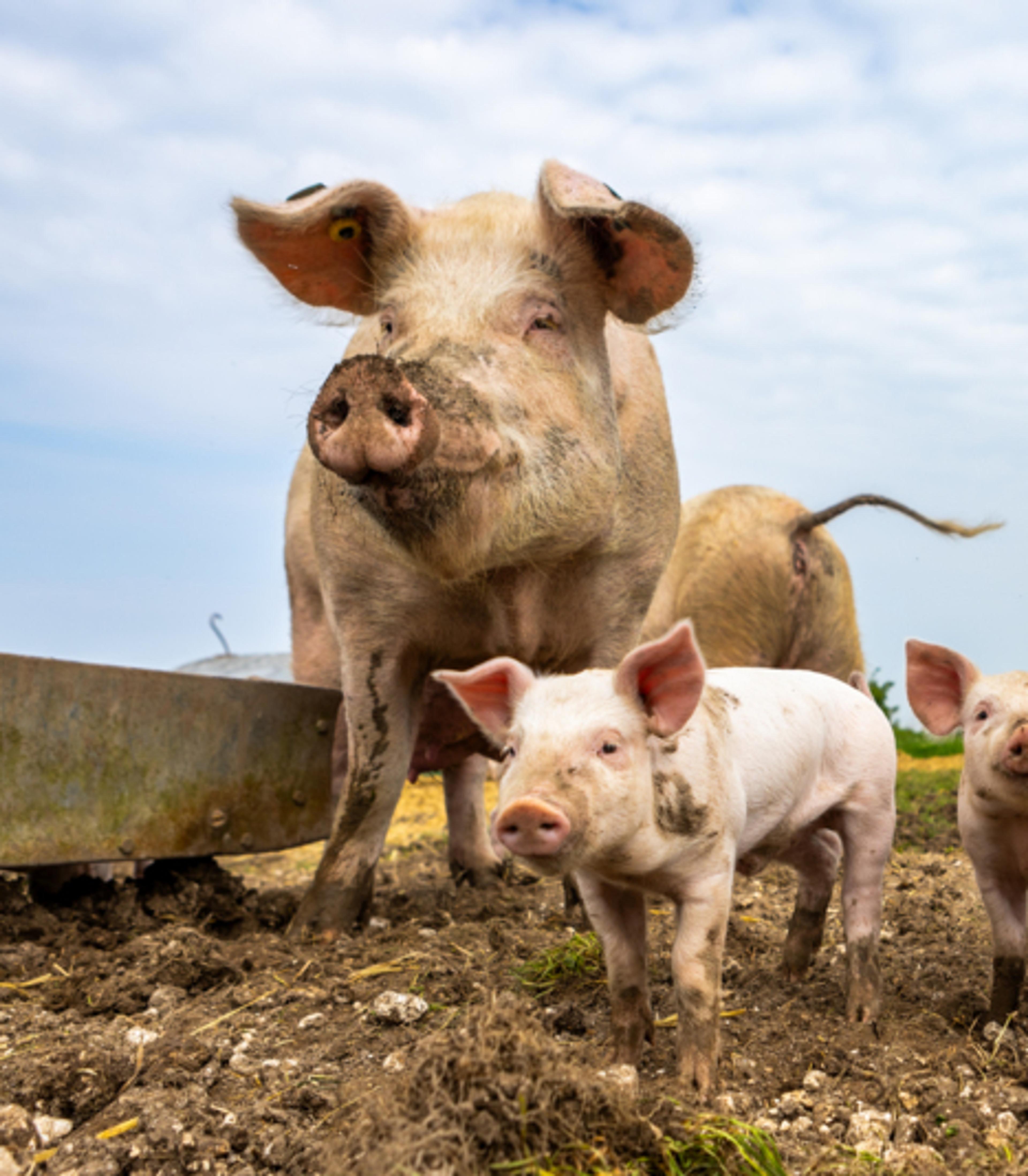
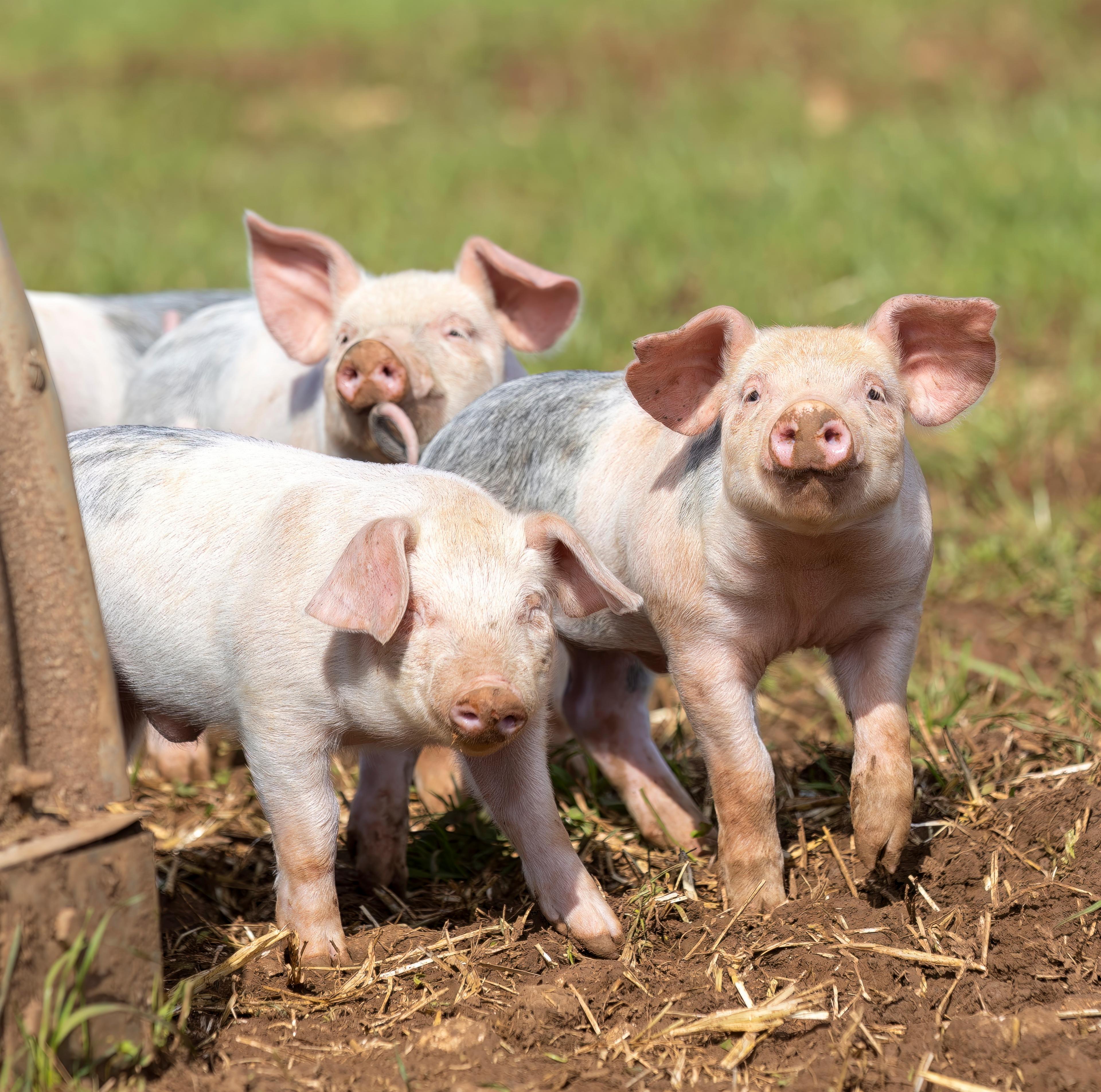
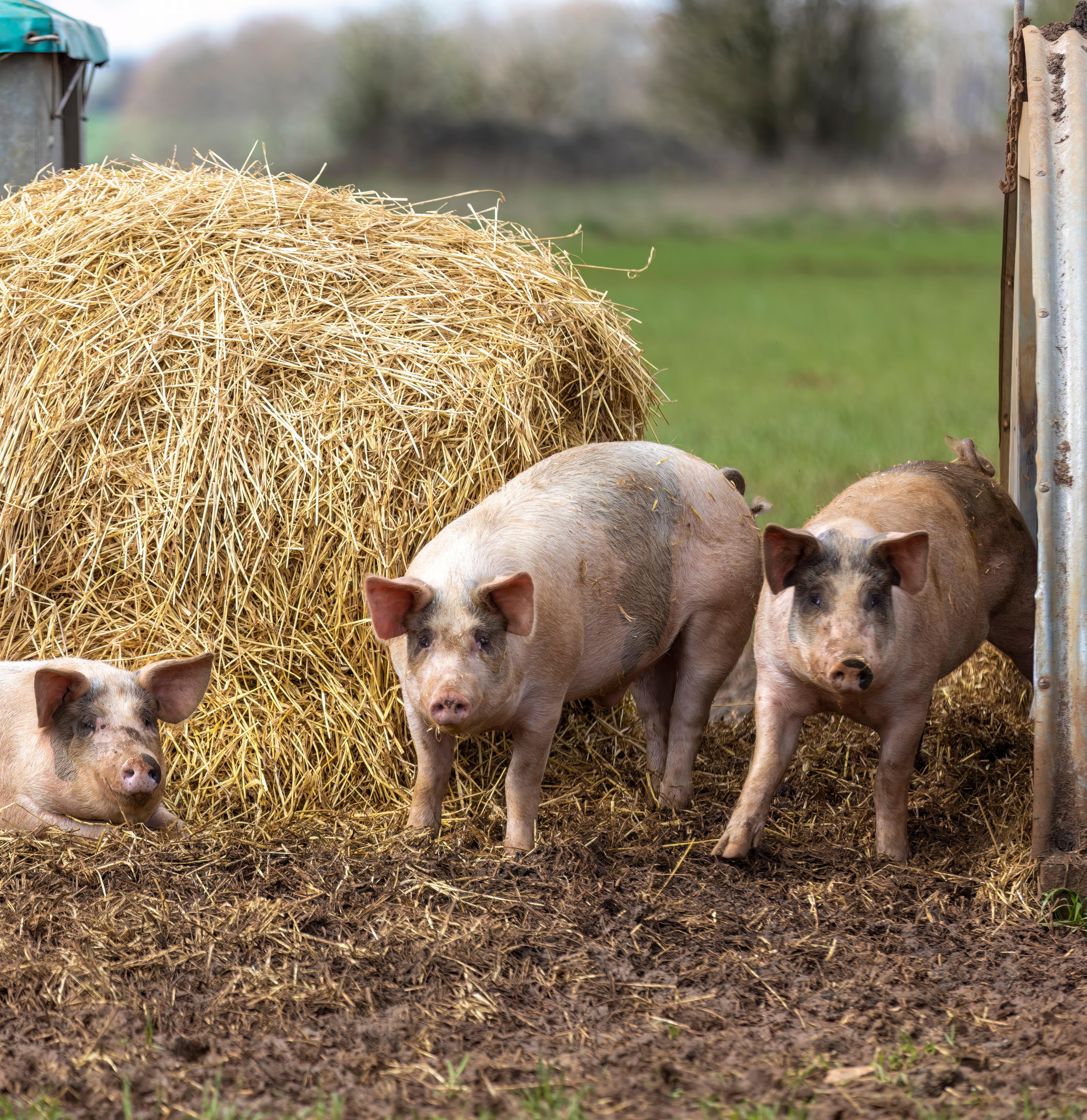
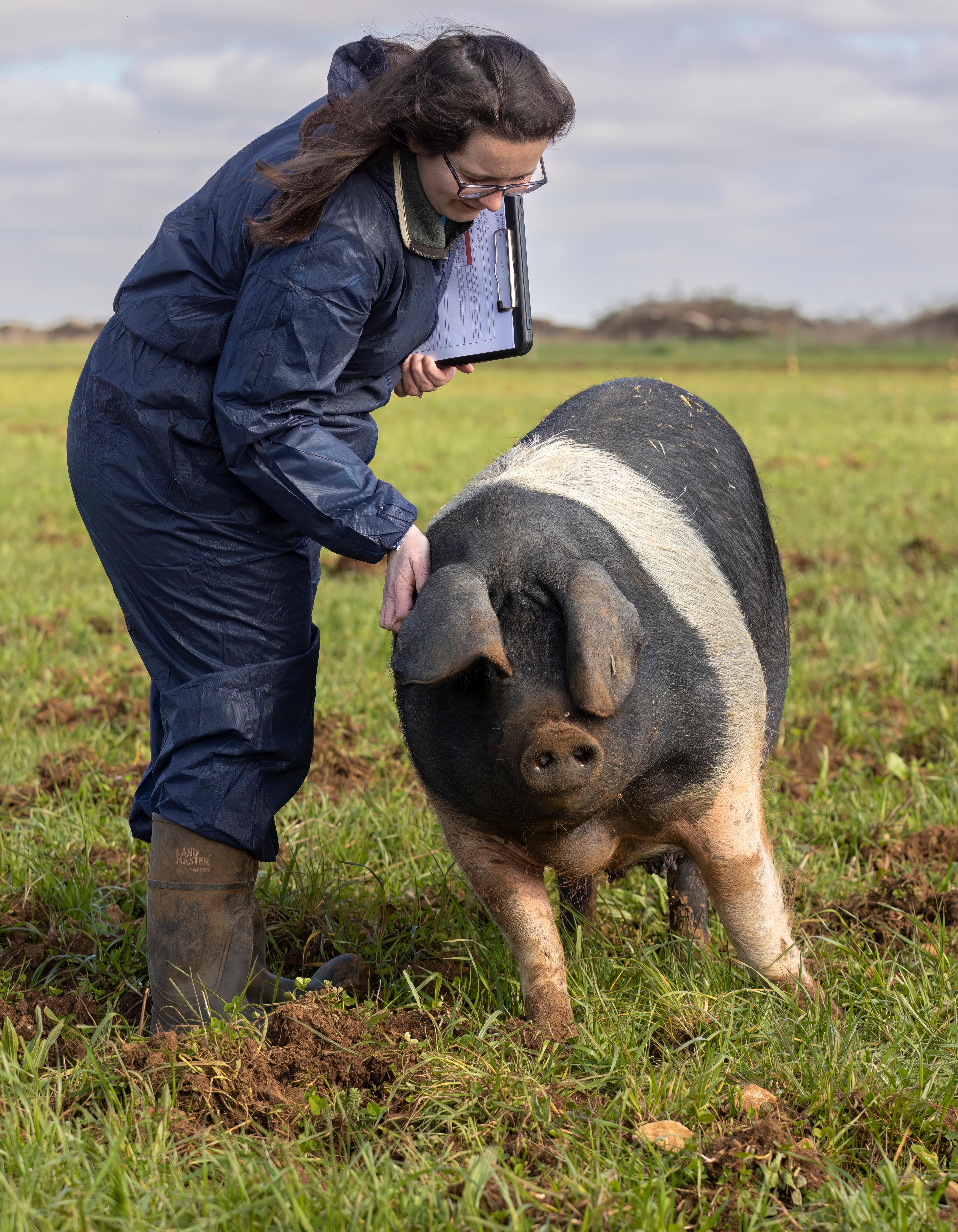
Out in the field
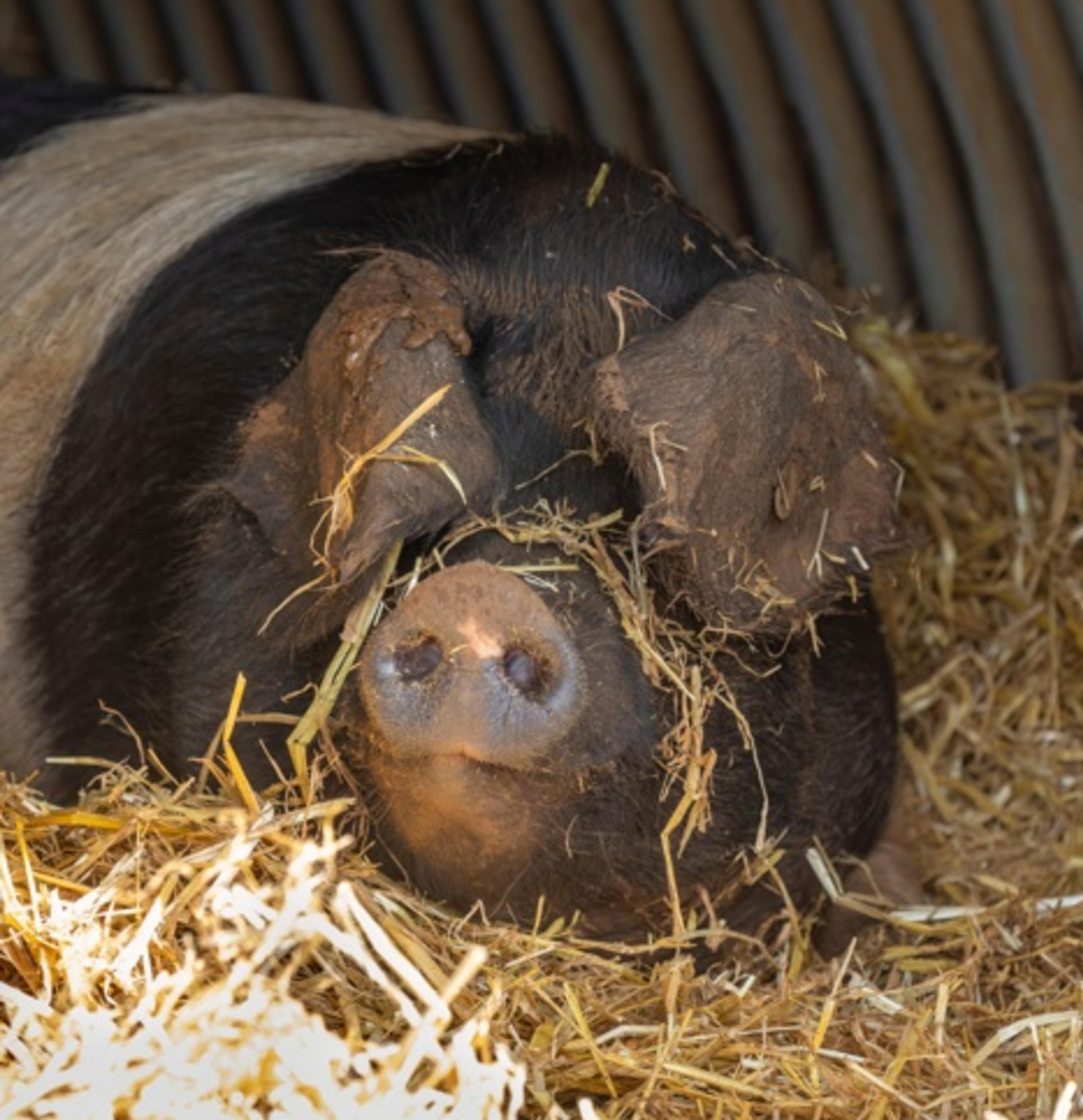
“I’ve seen pigs reared in lower welfare systems and it makes me sad that they won’t ever experience straw. It’s like a soft bed for them and a toy all in one – and makes a huge difference to their welfare.”
Jan Queen, RSPCA Assured assessor
